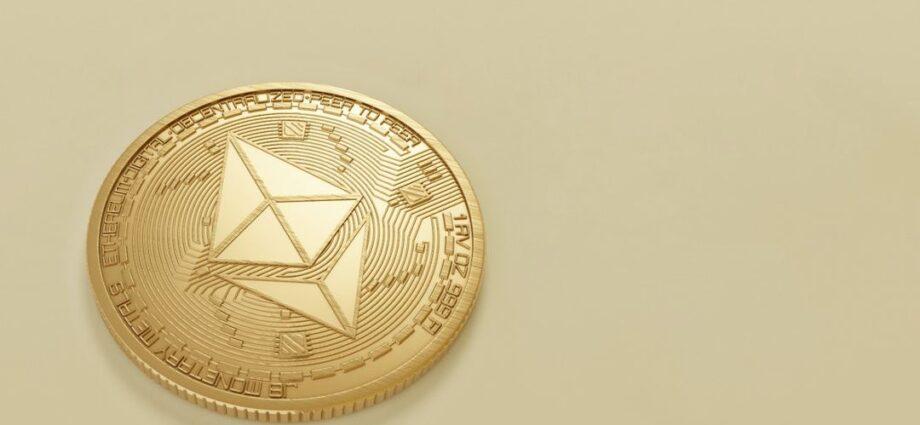You may have encountered Ethereum due to its significance in establishing NFTs (non-fungible tokens). Or maybe you’ve seen it’s the second-most popular cryptocurrency and want in on the fun. Perhaps you’ve noticed the several new all-time highs it’s recently hit. Well, this article goes through some basics of Ethereum and how you can buy it.
What is ethereum?
Understanding what you’re investing in is critical before you start buying coins. So what exactly is Ethereum? Ethereum is a decentralized software platform based on blockchain technology. It uses a peer-to-peer network to execute and verify application code, called smart contracts, securely. Smart contracts enable parties to transact with one another without needing a centralized authority like banks. Transaction records are immutable, verifiable, and securely disseminated over the network, allowing parties complete ownership and insight of transaction data.
How to buy ethereum
Below is an easy beginner step-by-step walkthrough on how to buy Ethereum.
Step 1: Choose a regulated Ethereum exchange
You can’t purchase cryptocurrency through a bank or an online brokerage like Fidelity or Vanguard, so you’ll have to use a cryptocurrency trading platform. There are numerous cryptocurrency exchanges, ranging from easy-to-use systems to complex ones for experienced traders.
Ethereum is very popular; hence most cryptocurrency exchanges have it on their platform. It is recommended to stick to the more popular exchanges like Bybit, Coinbase, Binance, Gemini, Bitfinex Kraken, and Bitstamp to buy your Ethereum. Ethereum is also one of the few types of cryptocurrency that can be purchased through services such as Venmo or PayPal. The Different platforms have different fees and security measures.
Step 2: Create an Account
After choosing the exchange of your choice, you must create an account. This procedure is comparable to registering for a brokerage account. You will be required to supply your name, address, social security number, and several pieces of identification, among other things. If you are not prompted for this information, it is recommended that you investigate the validity of the Ethereum brokerage.
Account verification is often the last step in the account opening procedure. For verification, you are mainly required to upload some documents to verify your identity. Verification might take an hour and a day or two, depending on the exchange.
Step 3: Add funds to your account
After your account gets verified, you’ll then be able to connect to your bank account or debit card. Depending on what you choose, there are different transaction fees.
Fees for deposits and withdrawals vary based on the kind of transfer and the exchange utilized. Fee information is frequently seen in the footer of an exchange’s webpage. Googling an exchange’s name and the phrase “fees” may also help uncover exchange fee information.
Cryptocurrency exchanges do not often have significant minimum investments so you may invest as little as $5 or as much as $1,000.
Swapping enormous quantities at once may be preferable since most exchanges charge on each deal.
Step 4:Find the cryptocurrency and place an order on Ethereum
After depositing funds to your account, you’ll be able to trade for Ethereum. Enter the amount of USD you want to exchange for Ethereum. Depending on the price of Ethereum and how much you wish to buy, you will most likely be purchasing shares of a single Ethereum currency. Whatever you pay will be displayed as a proportion of the total ether currency.
Each exchange has a different interface, but expect to confirm transactions and then allow for processing time, which can also vary depending on the overall amount of transactions requested.
To acquire Ethereum, type its ticker symbol—ETH—in the “buy” form on your exchange, followed by the amount you want to spend. You can buy a portion of an Ethereum token if you don’t want to acquire the entire coin or don’t have enough money in your account.
For example, if Ethereum is worth $5,000 and you invest $500, you will receive 10% of an Ether token. It’s similar to buying a fractional share of stock.
Step 5: Confirm your Ethereum buy order. The digital coins will be put into your wallet
Ethereum is not physical money like banknotes and coins. Digital currencies are instead kept on a blockchain, which is a decentralized ledger.
In light of this, Ethereum is stored in a digital crypto-wallet, which can be downloaded to your mobile phone or home computer. Many seasoned cryptocurrency investors choose to keep complete control of their Ethereum by storing all of their digital assets in a private wallet.
After purchasing ETH on the exchange, you may withdraw it into your bank account or wallet.
Keeping it in your exchange account is best if you only have a small amount of cryptocurrency. However, a digital wallet can provide extra security if you wish to shift your investments to more safe storage. There are several digital wallets, each with a distinct level of protection.
There are two main categories of third-party wallets. They include:
Hot Wallet: A hot wallet can be accessed through a computer or smartphone. They’re convenient and frequently given at no additional cost by cryptocurrency exchange platforms. However, you may use your own if you’d rather keep your crypto off the exchange. They are, however, more vulnerable to security breaches because they are still linked to the internet.
Cold Wallet: Cold wallets are standalone devices that are not linked to the internet. While cold wallets are less convenient than hot wallets since they need you to connect to the internet whenever you want to access your cryptocurrency, they are safe. They may make sense if you have a significant amount of Ethereum or other cryptocurrencies.

Comments are closed, but trackbacks and pingbacks are open.